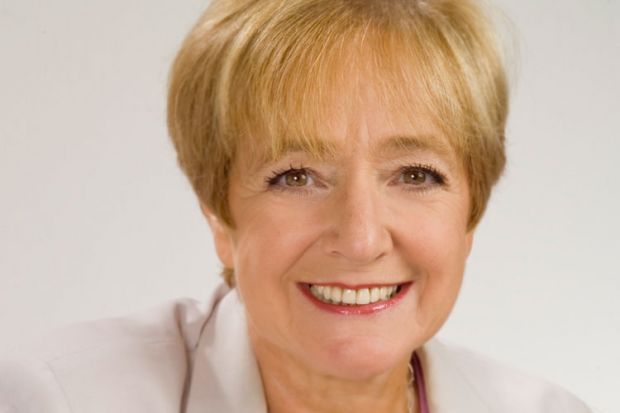Source: National Archives
The public accounts committee, led by its chair Margaret Hodge, gave senior civil servants a brutal examination on the student loans system yesterday.
It also emerged that the government now estimates that up to 40 per cent of its outlay on student loans will never be repaid.
Meanwhile, the Student Loans Company was forced into embarrassing revelations about its use of expensive 0845 numbers for student callers, and the inability of its telephone system to handle international prefixes when tracking down overdue borrowers overseas.
The government said in the Autumn Statement last week that it would fund the abolition of student number controls – bringing around 60,000 extra students a year – by selling pre-2012 student loans.
That, Ms Hodge argued, was likely to bring added pressure on the Resource Accounting and Budgeting (RAB) charge – the portion of loans the government estimates will never be repaid.
Ms Hodge, a former higher education minister, said the sale of loans had to be able to fund both extra teaching grant (which applies in high-cost subjects) and the “increase in RAB” resulting from extra student numbers.
Martin Donnelly, permanent secretary at the Department for Business, Innovation and Skills, said the announcement of extra numbers referred to the “potential” sale of student loans, and the resulting funding would be sufficient “if that works”.
Ms Hodge repeatedly asked Mr Donnelly whether the sale of loans would fully fund the extra places.
Mr Donnelly said: “The announcement - which was made in broad terms, and therefore we’ve got to bottom out all of this - made clear it [the sale of loans] was aimed at funding the additional cost of those students…From my perspective, the answer is yes.”
Ms Hodge replied: “I think you’ll find the answer is no. If you want to amend that answer you’ve just given us in writing later, that would be better than getting the wrong answer in the long term.”
On existing estimates on the RAB charge, Ms Hodge said they had grown from 28 per cent in 2010 to 35 per cent this year. This was a “massive change between years” at “massive cost to the public purse”, she said.
Asked for the department’s current estimate, Mr Donnelly said “we’re talking of a RAB charge in the area of 35 to 40 per cent”.
When Ms Hodge highlighted the 40 per cent figure, he replied: “At the moment it’s at the top end of our estimates but it’s not unrealistic.”
Turning to the SLC and its chief executive, Mick Laverty, Ms Hodge said National Audit Office figures showed that for UK borrowers living abroad, three quarters of late payments had been overdue for between one and four years.
She asked: “Why on earth, if that is the case, haven’t you got a strategy which hits them early and sets a target for collection?”
Mr Laverty went on to discuss the SLC’s telephone system. “The difficulty we have at the moment [is that] the telephony system we have - that [automatically] phones people who are in arrears or who owe us money and routes the call to one of our collections team - can’t deal with overseas international prefixes,” he said.
When one of the MPs on the committee expressed incredulity, he said: “I’m not kidding. The technology can’t deal with that so we are doing that manually.”
On the SLC’s use of 0845 numbers, Mr Laverty said these could cost callers up to 41p a minute. The SLC was “currently reviewing their usage” but is still using them, he said.
The SLC made £78,000 a year from the numbers, but it would cost £900,000 to switch to cheaper 03 numbers, Mr Laverty said.
Richard Bacon, MP for South Norfolk, said for some students, the cost of an 0845 call could fund a meal. He said: “You’re a £46 billion pound organisation…Surely to goodness you could set up a situation where people can telephone you without having to forego an evening meal.”




